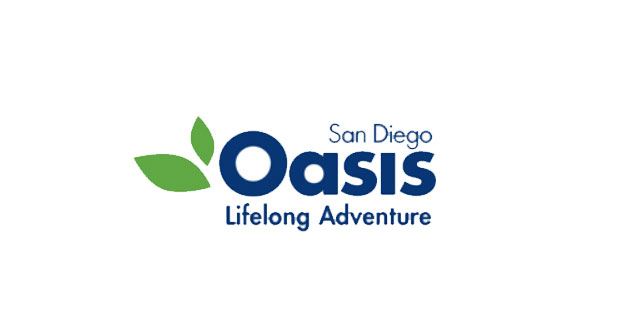 By Simona Valanciute
By Simona Valanciute
President and CEO, San Diego Oasis
Seniors have been hit hard by the pandemic. Highly effective COVID-19 vaccines now offer hope of a return to a more normal life, but many of our institutions might be changed forever.
However, this can be a good thing. Life for many people post-pandemic will likely never be the same—but seniors can and should re-engage with a changed world safely.
Recently, San Diego Oasis hosted an “After Your Shots” webinar, featuring advice from local experts including Dr. Daniel Hoefer of Sharp Healthcare and psychologist Dr. Ken Druck. Here’s what they said seniors can do post-vaccination, how they can cope with the changes in our world and why lifelong learning and social connections are so important for their health post-pandemic.
What Can I Do Now That I’m Vaccinated?
First things first: all eligible adults should get vaccinated against COVID-19 (you can call 211 for help scheduling an appointment over the phone).
According to Dr. Hoefer, socializing with another fully vaccinated person unmasked and inside is very low-risk once you’re fully vaccinated. If you’d like to visit unvaccinated family members, friends or grandchildren, you will likely pose minimal risk to them, but it’s safest to wear masks. In the meantime, we should all continue to wash our hands, wear masks and keep our distance in public, to protect those who may be immune-suppressed or have not had a chance to be vaccinated yet.
If you’re vaccinated, you can get haircuts, massages, manicures and pedicures, go shopping at local stores, do errands and travel domestically. Just be sure to make appointments ahead of time, and follow all mask and distancing rules they may have. If you plan to travel, laminate your vaccination card, take it with you and have a picture of it on your phone for back-up—and confirm any travel restrictions your destination may have.
Changed for Good
The past year has been traumatic for everyone, so trepidation about resuming some activities is normal. But according to both Dr. Hoefer and Dr. Druck, staying socially connected, physically active and mentally curious was key to survival for most of their senior patients throughout the pandemic, and will be crucial for them post-pandemic too.
The past year-plus has been a trying time, starkly highlighting the health risks of social isolation for all of us, especially older adults. The top predictor of early death among retirees and older adults is social isolation, according to Dr. Hoefer. Over the past year, his patients who were socially isolated experienced more diabetes complications and heart failure than those who had strong social connections, whether through online classes and volunteering or regular chats with friends and family.
At San Diego Oasis, which offers lifelong learning classes for older adults, we observed the same phenomenon in many of our students—those who stayed engaged with classes and friends reported better health than those who withdrew. Throughout the pandemic, San Diego Oasis has focused on building a “senior center without walls” where older adults can find learning and connection, even at home, through a wide variety of free or low-cost classes. Our students and instructors, most of whom are 65 and older, have eagerly adapted to online learning, and can now attend class both virtually and in a hybrid, part-online, part in-person format.
Humans are social creatures, and we thrive on positive mental challenges. Dr. Druck put it best: life may never be the same, but we can use the challenges of this past year and the challenges ahead of us to try new things, engage with the world and build a healthier, more fulfilling life.
Simona Valanciute is the President and CEO of San Diego Oasis, an award-winning nonprofit organization serving people age 50 and better, who pursue healthy aging through lifelong learning, active lifestyles, and community service. Learn more at www.sandiegooasis.org.




